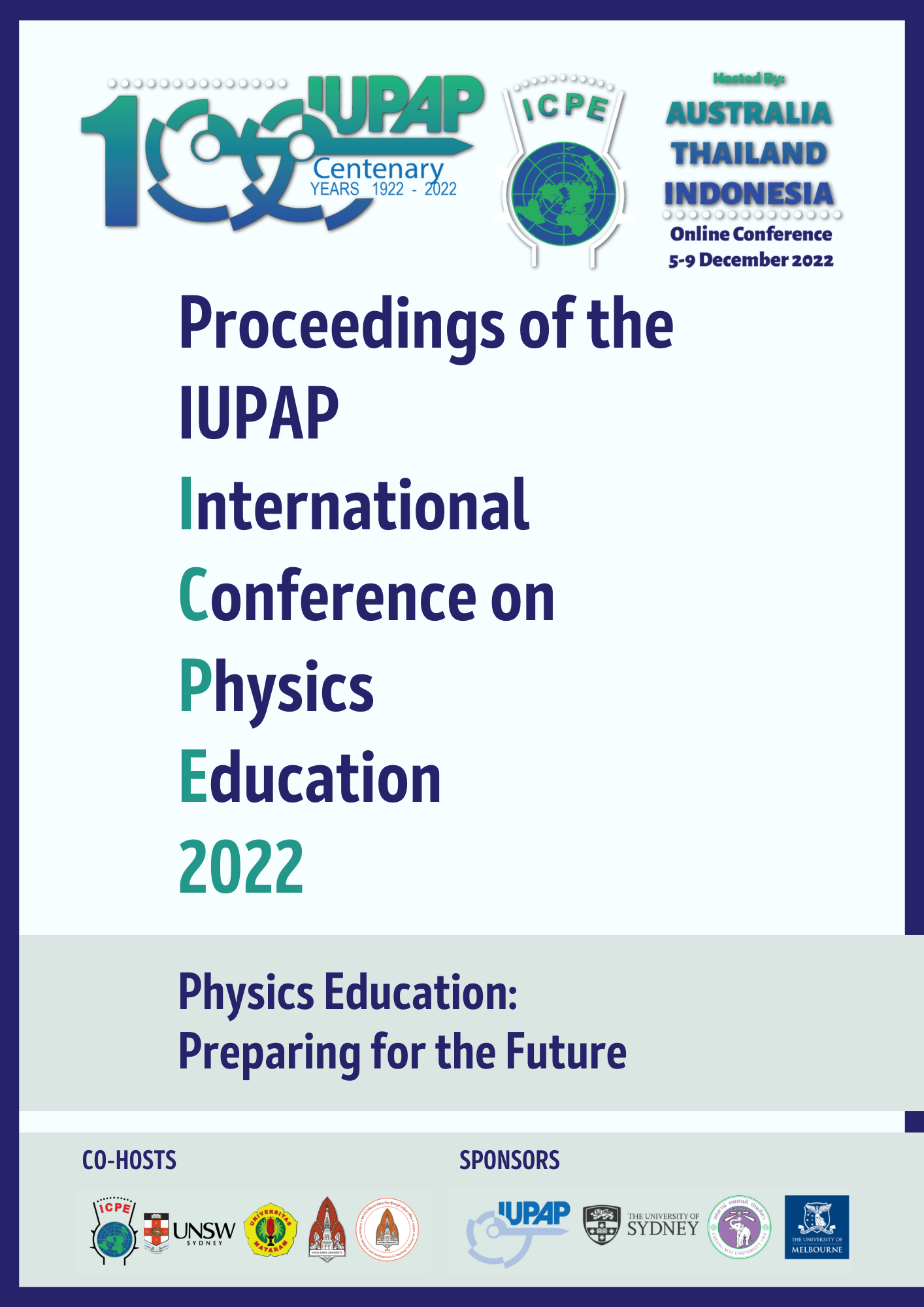The role of pragmatic and epistemic agency in supporting engagement in computational physics practices
Keywords:
Computational Physics, Agency, Project-based LearningAbstract
Computational and project-based physics courses have been demonstrated to provide opportunities for students to engage in practices that mirror those of professional physicists (Holubova, 2008; Pawlak, Irving, & Caballero, 2020; Graves & Light, 2020). Similarly, researchers have studied how designing laboratories that support student agency and decision making can similarly support students engaging in the physics practices (Holmes, Keep, & Wieman, 2020).
In this presentation, we discuss a project-based computational physics course for which agency is a core design principle: class activities and assignments are designed to provide students with a very high degree of authority over what and how to model computationally (Burke & Atherton, 2017; Phillips, Gouvea, Gravel, Beauchemin, & Atherton, 2022). We identify two forms of agency relevant to students’ engagement: pragmatic agency, or agency over practical decisions (Hitlin & Elder, 2007), and epistemic agency, or agency over what knowledge is created and how it is created (Miller, Manz, Russ, Stroupe, & Berland, 2018). For example, a group that built a small ramp and modeled the motion of a dowels rolling on the ramp exercised agency in a variety of ways over the course of their project. In exercising pragmatic agency, they revised their ramp design to make it longer and shallower in order to make the motion of the dowel easier to capture with video analysis tools. They seemed to view this decision as not impacting their target knowledge of understanding how a dowel would move on a ramp—the particular shape was not of interest. In exercising epistemic agency, they decided it was sufficient that their computational model qualitatively fit the rate of energy dissipation, even though the precise trajectory of the dowel did not match. In doing so, they not only exercised agency over what knowledge they created, but also the standards by which that knowledge should be evaluated. These types of decisions mirror those of experimental physicists in research.
Through analysis of students’ end of project reports and code (written in Jupyter notebooks) from this group and others, we can identify a wide range of computational physics practices. We show that many of these practices arise naturally in this agency-centered classroom, without specific instructional intervention. We conclude with further questions for research, as well as hypotheses about how these principles may apply in other learning environments.
REFERENCESBurke, C. J., & Atherton, T. J. (2017). Developing a project-based computational physics course grounded in expert practice. American Journal of Physics, 85(4), 301-310.
Graves, A. L., & Light, A. D. (2020). Hitting the ground running: Computational physics education to prepare students for computational physics research. Computing in Science & Engineering, 22(4), 50-60.
Hitlin, S., & Elder Jr, G. H. (2007). Time, self, and the curiously abstract concept of agency. Sociological theory, 25(2), 170-191.
Holmes, N. G., Keep, B., & Wieman, C. E. (2020). Developing scientific decision making by structuring and supporting student agency. Physical Review Physics Education Research, 16(1), 010109.
Holubova, R. (2008). Effective Teaching Methods--Project-based Learning in Physics. Online Submission, 5(12), 27-36.
Miller, E., Manz, E., Russ, R., Stroupe, D., & Berland, L. (2018). Addressing the epistemic elephant in the room: Epistemic agency and the next generation science standards. Journal of Research in Science Teaching, 55(7), 1053-1075.
Pawlak, A., Irving, P. W., & Caballero, M. D. (2020). Learning assistant approaches to teaching computational physics problems in a problem-based learning course. Physical Review Physics Education Research, 16(1), 010139.
Phillips, A. M., Gouvea, E. J., Gravel, B. E., Beauchemin, P. H., & Atherton, T. J. (2022). Physicality, Modeling and Making in a Computational Physics Class. arXiv preprint arXiv:2203.04134. https://doi.org/10.48550/arXiv.2203.04134
Downloads
Published
Issue
Section
License
Authors who publish with the Proceedings of the International Conference on Physics Education 2022 agree to the following terms:
a) Authors retain copyright and grant the journal right of first publication with the work simultaneously licensed under a Creative Commons Attribution License (https://creativecommons.org/licenses/by/4.0/) that allows others to share the work with an acknowledgement of the work's authorship and initial publication in this journal.
b) Authors are able to enter into separate, additional contractual arrangements for the non-exclusive distribution of the journal's published version of the work (e.g., post it to an institutional repository or publish it in a book), with an acknowledgement of its initial publication in this journal.
c) Authors are permitted and encouraged to post their work online (e.g., in institutional repositories or on their website) prior to and during the submission process, as it can lead to productive exchanges, as well as earlier and greater citation of published work (See The Effect of Open Access - http://opcit.eprints.org/oacitation-biblio.html).
Privacy Statement The names and email addresses entered in the Proceedings of the International Conference on Physics Education 2022 site will be used exclusively for the stated purposes of this journal and will not be made available for any other purpose or to any other party.
